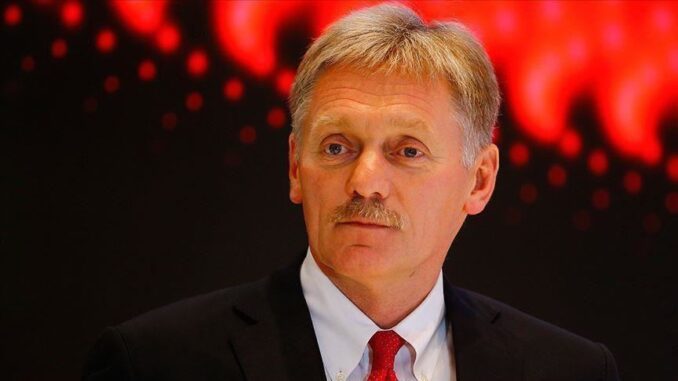
Russia on Monday called on Armenia and Azerbaijan to exercise restraint and give up military methods of conducting affairs.
Speaking to reporters, Kremlin spokesman Dmitry Peskov said the escalation of the conflict in Nagorno-Karabakh is the “most serious concern.”
Russia considers it “inappropriate” to draw a conclusion on who is right and who is guilty, and uses its good relations with Armenia and Azerbaijan in a bid to de-escalate the situation, Peskov said.
Russian Foreign Minister Sergey Lavrov has been in contact with his Armenian and Azerbaijani counterparts in order to promote peacemaking efforts, he added.
The Kremlin spokesman said that President Vladimir Putin held a phone talk with Armenian Prime Minister Nikol Pashinyan at the latter’s request on Sunday and that he will talk to Azerbaijani President Ilham Aliyev if necessary.
Moscow is also “in full contact” with Ankara on the issue, the spokesman added.
“At the moment, we call on all parties, especially the parties to the conflict, to exercise maximum restraint, to abandon military methods of conducting affairs, and also to refrain from any steps that may provoke further undesirable aggravation of the situation,” he said.
Border clashes broke out early Sunday when Armenian forces targeted Azerbaijani civilian settlements and military positions, leading to casualties.
Azerbaijan’s parliament declared a state of war in some of its cities and regions following Armenia’s border violations and attacks in the occupied Nagorno-Karabakh region.
Relations between the two former Soviet neighbors have been tense since 1991, when the Armenian military occupied Upper Karabakh, or Nagorno-Karabakh, an internationally recognized territory of Azerbaijan.
Four UN Security Council and two UN General Assembly resolutions as well as many international organizations demand the withdrawal of the occupying forces.
The OSCE Minsk Group – co-chaired by France, Russia and the US – was formed in 1992 to find a peaceful solution to the conflict, but to no avail. A cease-fire, however, was agreed upon in 1994.
France, Germany and Russia, among others, have urged an immediate halt to clashes in the occupied region.
BY ANADOLU AGENCY
